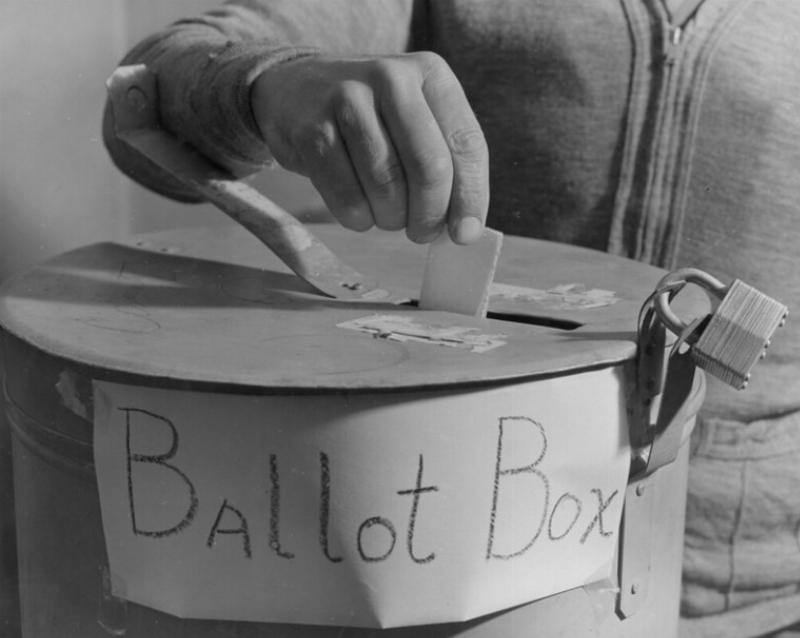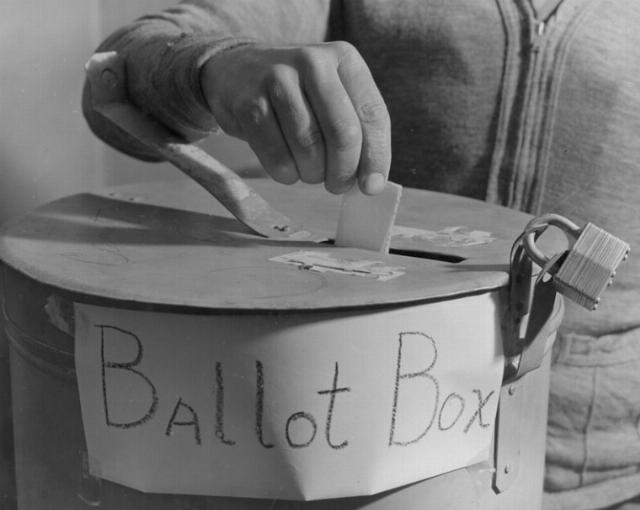


Roger Alejandro Piñate Martínez, the Venezuelan-American co-founder and president of Smartmatic, is again at the center of an expanding international bribery and corruption investigation — this time due to an alleged bribery scheme in 2019 involving Tibisay Lucena Ramírez, the now-deceased but longtime president of Venezuela’s National Electoral Council (CNE).
A new court filing dated August 1, 2025 cites the return of a six-count indictment resulting from a federal grand jury case in the Southern District of Florida. The case involves bribery and money-laundering in the Philippines.
Importantly, this same filing also introduces “evidence of defendant Piñate’s payment of a bribe” to Lucena “through witness testimony, photographs, and text communications.” The case was originally announced by the Department of Justice (DOJ) in an August 8, 2024 press release, involving Piñate and two others who were charged with a “bribery and money laundering scheme to retain and obtain business related to the 2016 Philippine elections.”
Background on Alleged Quid Pro Quo in Venezuela (2019 Allegations)
New evidence introduced in the August 1, 2025 court filing (pp. 10–11) states that in 2019 — two years after Smartmatic formally ended operations in Venezuela — Piñate allegedly transferred a luxury residential property in Caracas to Lucena through an offshore company. Prosecutors allege that the bribe was a quid pro quo intended to secure Tibisay Lucena’s support in resolving a commercial dispute between Smartmatic and the Venezuelan government.
Lucena was president of Venezuela’s National Electoral Council (CNE) from 2006 to 2020 and wielded significant authority over the country’s voting system and private vendors. Her leadership attracted international scrutiny and sanctions because of her alleged failure to “ensure that the CNE remain[ed] an impartial and independent institution in accordance with the Venezuelan Constitution, thereby facilitating the establishment of the Constituent Assembly and the re-election of Nicolás Maduro in May 2018 through presidential elections that were neither free nor fair,” according to a publicly released sanctions document.
The CEO of Smartmatic, Antonio Mugica, publicly accused the Nicolás Maduro regime of committing fraud in the August 2017 National Constituent Assembly election — a charge that prompted the company to shut down its operations in Venezuela. Mugica claimed that the “actual turnout was inflated by at least one million.” Maduro disputed the allegations, claiming the company bowed to pressure from the United States to discredit his win, and Lucena called it an “irresponsible accusation, based on estimates.”
According to reporting from the Miami Herald, “Prosecutors allege that Piñate sought to repair the relationship and believed Lucena — then still council president — was essential to achieving that goal.” Although the bribery charges have not yet resulted in a separate indictment, U.S. officials have confirmed they are investigating the transaction as a potential FCPA violation.
Smartmatic was founded in 2000 by Piñate, Antonio Mugica, and Alfredo José Anzola, “with the goal of providing secure digital voting systems. The company gained international prominence after the Chávez government awarded it contracts to modernize Venezuela’s election infrastructure in 2004,” according to the Miami Herald.
The new DOJ charges mark an escalation in the scrutiny of Smartmatic and its executives. The allegations — backed by extensive evidence of encrypted communications, shell companies, and offshore transfers — paint a damning portrait of a global enterprise operating with little regard for the rule of law.
Indictments in August 2024: The Philippine Connection
As previously mentioned, in August 2024, the DOJ indicted three individuals, including Piñate, for their roles in an alleged multimillion-dollar bribery and money-laundering scheme designed to secure and retain election-related contracts in the Philippines. The charges stem from violations of the Foreign Corrupt Practices Act (FCPA) and international money laundering laws.
According to the DOJ’s August 8, 2024, press release,
Roger Alejandro Pinate Martinez, 49, a Venezuelan citizen and resident of Boca Raton, Florida, and Jorge Miguel Vasquez, 62, a U.S. citizen and resident of Davie, Florida together with others, allegedly caused at least $1 million in bribes to be paid to Juan Andres Donato Bautista, 60, the former Chairman of COMELEC. These bribes were allegedly paid to obtain and retain business related to providing voting machines and election services for the 2016 Philippine elections and to secure payments on the contracts, including the release of value added tax payments.
Prosecutors allege that the conspirators financed the bribes by inflating the per-unit price of voting machines used in the 2016 Philippine elections, thereby creating a secret slush fund. To hide the illegal payments’ true purpose, they reportedly used coded terms when discussing the scheme and fabricated contracts and bogus loan agreements to legitimize the transfers. The funds tied to the bribery were then laundered through various bank accounts across Asia, Europe, and the United States. This included accounts in Florida’s Southern District, according to the DOJ’s statement. The use of U.S. bank accounts and companies based in Florida gives authorities in the U.S. jurisdiction under the FCPA and federal anti-money laundering statutes.
If convicted, Piñate faces up to five years in prison for each FCPA count and up to twenty years per count of money-laundering. He has pleaded not guilty to all charges. The trial is currently scheduled for October 2025 in the Southern District of Florida.
Smartmatic’s Denials
Smartmatic has strongly denied all wrongdoing. In a statement to multiple media outlets, the company declared that “the accusations are untethered from reality and mischaracterize the company’s global compliance practices.” Smartmatic further claimed that it ceased all operations in Venezuela in August 2017 and has had no commercial interests in the country since that time.
However, the DOJ’s filings suggest that Piñate personally maintained relationships with top Venezuelan officials and may have continued to act on Smartmatic’s behalf in foreign jurisdictions even after the company officially disengaged.
Smartmatic, which has long marketed itself as a global leader in secure election technology, has been under increasing scrutiny in recent years. Critics have raised concerns over its opaque corporate structure, its origins in Venezuela, and its involvement in elections in politically unstable regions.
The Smartmatic case underscores the broader problem of election tech firms operating in legal gray zones, outside the reach of meaningful public oversight. As the U.S. continues to outsource critical infrastructure — such as ballot-counting and voting machine manufacturing — to private, often foreign-linked vendors, concerns about accountability and transparency are likely to grow.

Image via U.S. Department of Agriculture, public domain.
